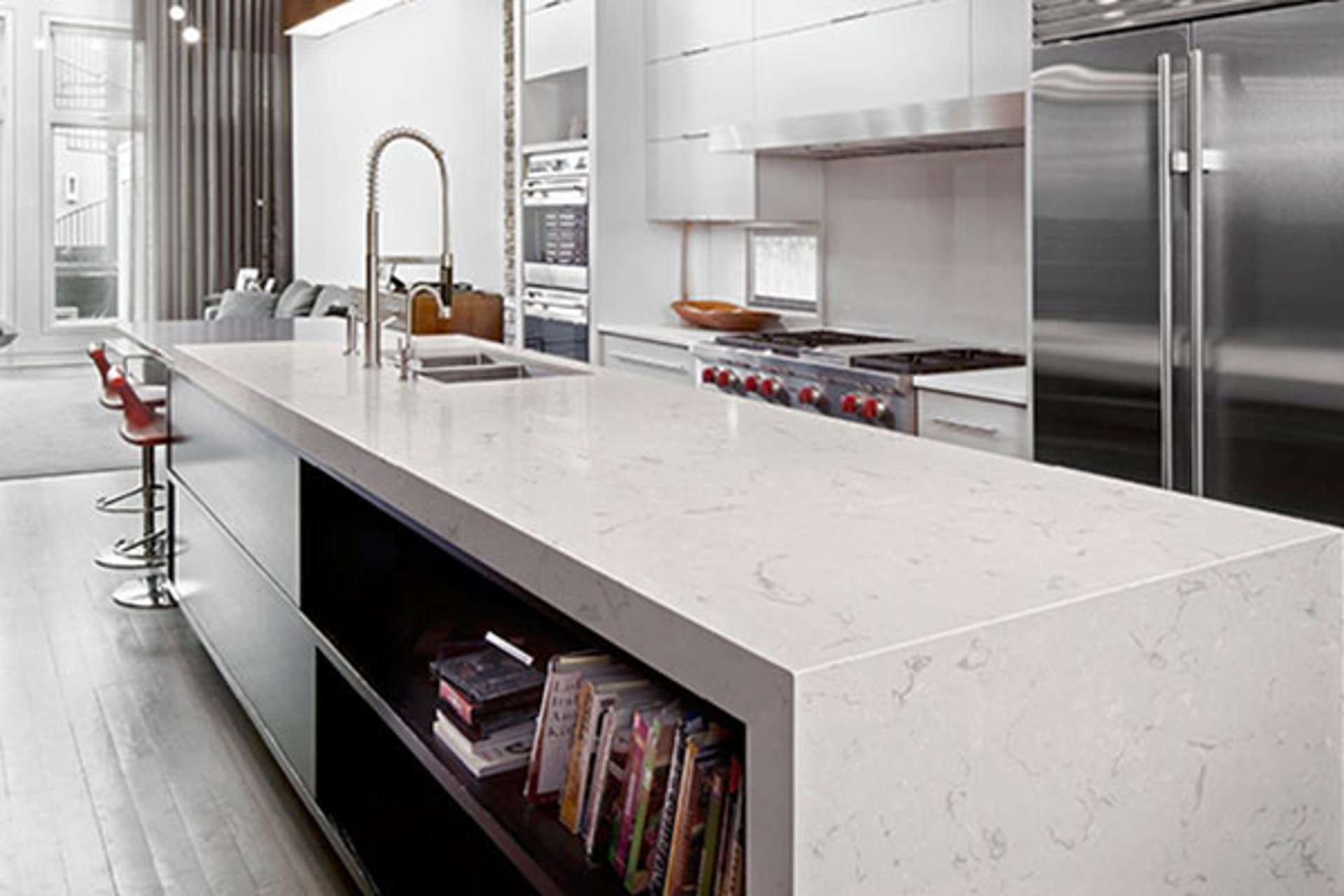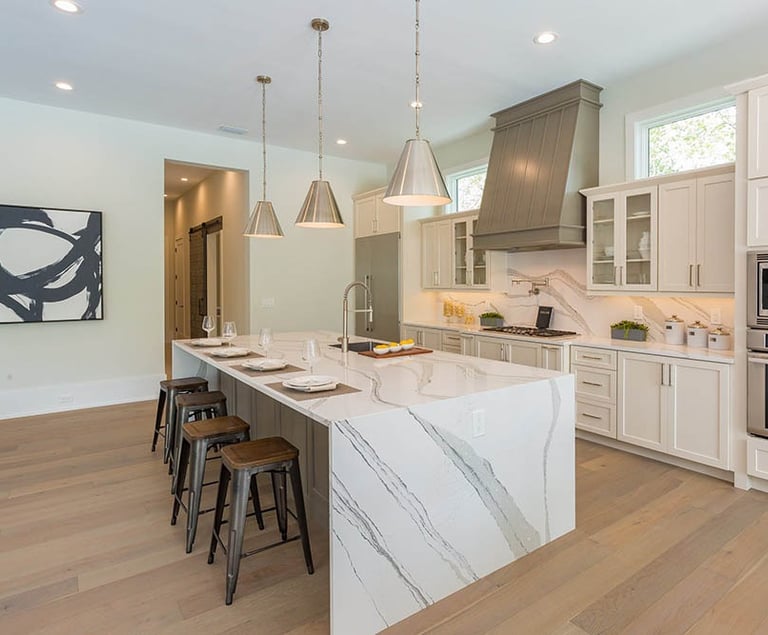
Blog
"Granite vs Quartz: Exploring the Perfect Countertop Choice
Are you in the midst of a home renovation or planning a kitchen upgrade? One crucial decision you'll face is choosing the perfect countertop material. Two popular options that often steal the spotlight are granite and quartz. In our latest blog post, we delve deep into the world of countertops, comparing the unique features and benefits of granite and quartz.
Granite and quartz are two popular materials used in countertops and other architectural applications. While both offer durability and aesthetic appeal, there are distinct differences between them. Granite is a natural stone formed from volcanic activity and consists mainly of quartz, feldspar, and mica. On the other hand, quartz countertops are engineered using a combination of natural quartz crystals and synthetic resins.


When it comes to kitchen and bathroom countertops, choosing the right material is crucial for both aesthetic appeal and functionality. Two popular options that often steal the spotlight are granite and quartz. While both offer durability and beauty, they have distinct characteristics that set them apart. In this comprehensive blog post, we will delve deep into the world of countertops, comparing the unique features and benefits of granite and quartz. By the end, you'll have a clear understanding of which option suits your needs and preferences.
Composition and Origin: Granite is a natural stone that forms through the cooling and solidification of molten magma deep within the Earth's crust. It mainly consists of quartz, feldspar, and mica. The combination of these minerals gives granite its unique color and pattern variations. On the other hand, quartz countertops are engineered using a combination of natural quartz crystals (around 93-95%) mixed with resins and pigments. This process creates a durable and consistent material that can mimic the appearance of natural stone or offer a wide range of color options.
Appearance: Granite countertops showcase the natural beauty of the stone. Each slab is unique, with its own patterns, colors, and veining. From subtle earth tones to vibrant hues, granite offers a wide range of options to complement any design scheme. On the other hand, engineered quartz provides a more uniform and consistent appearance. It can be manufactured to resemble various natural stones, such as granite or marble, or it can have solid colors and patterns. Quartz allows for greater design versatility and can be tailored to suit specific aesthetic preferences.
Durability and Maintenance: When it comes to durability, both granite and quartz are excellent choices. Granite is known for its exceptional strength and ability to withstand heat, making it perfect for kitchen countertops where hot pots and pans are frequently placed. It is also resistant to scratches and chips, although it's not entirely impervious to damage. Granite countertops do require regular sealing to maintain their appearance and protect against potential stains. On the other hand, quartz countertops are highly durable and resistant to scratches, chips, and stains. They are non-porous, which means they do not require sealing and are less likely to harbor bacteria. Quartz is also highly resistant to heat, but it is still advisable to use trivets or hot pads to protect the surface from extreme temperatures.
Cost: Cost is an important consideration when choosing between granite and quartz. Granite countertops generally have a lower upfront cost compared to quartz. However, it's important to consider the long-term cost implications. Granite requires periodic sealing, which adds to the maintenance cost. Additionally, if a granite slab with a unique color or pattern is desired, it may be more expensive. On the other hand, engineered quartz countertops usually have a higher initial cost than granite. The price of quartz varies based on factors such as brand, design complexity, and thickness. While quartz may have a higher upfront investment, its long-term durability and minimal maintenance requirements can make it more cost-effective in the future.
Design Flexibility: Granite offers a unique and distinctive appearance due to its natural variations. The patterns and colors of granite slabs cannot be replicated, which adds an element of exclusivity to any space. On the other hand, engineered quartz provides greater design flexibility. It can be manufactured in various colors, patterns, and textures, making it easier to match specific design schemes or create a desired aesthetic.
In summary, granite is a natural stone with unique patterns and colors, requiring periodic maintenance and sealing. Quartz, an engineered material, offers consistency, durability, and minimal maintenance. The choice between granite and quartz ultimately depends on personal preference, desired appearance, budget, and the specific needs of the space.